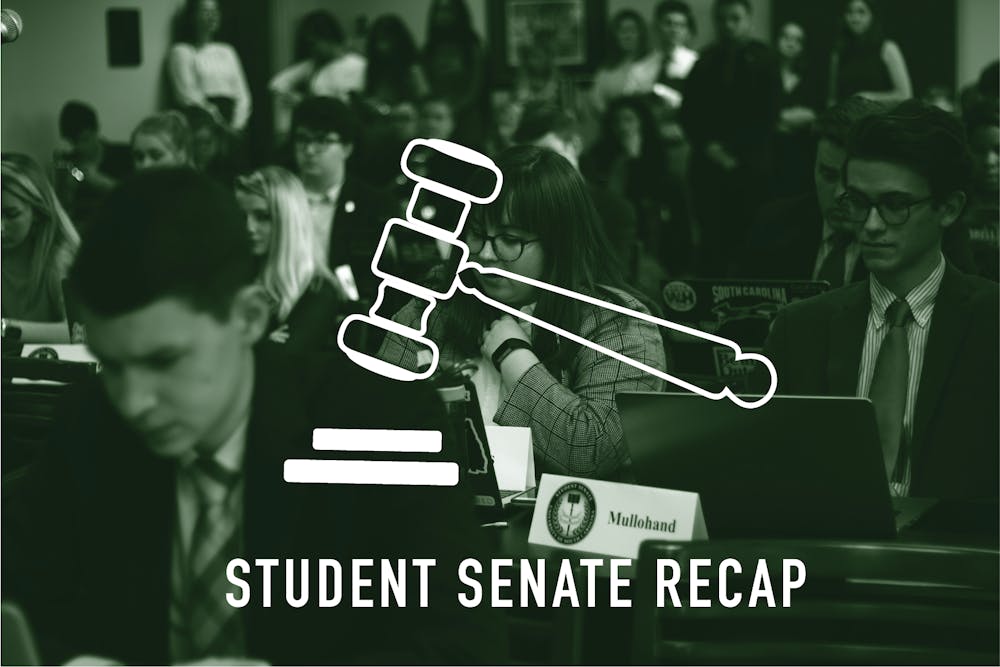Legislation was introduced to clarify the handling of student conduct violations during election season at the student senate meeting on April 13.
In the previous 113th student senate, legislation unanimously passed to make student conduct violations grounds for impeachment and require student senators to report conduct violations to the faculty advisor of the senate within 10 days.
The new bills, sponsored by Senator Maeve Smith, a second-year political science student, build off the rules outlined previously surrounding violations by senators.
Smith's first piece of legislation recommended students with ongoing conduct cases should still be allowed to run for office.
“I just want to make sure that conduct is properly understood and handled within Student Government," Smith said. "Ultimately, the point of this is I don't think that we should be presuming guilt. We don't in the United States, we shouldn't in the student senate."
Smith’s second piece of introduced legislation requires students who run with open student conduct investigations to report the verdict to the faculty advisor within 10 days of the verdict being made. This is the same as Glasgow’s bill required for sitting senators.
The last of Smith's introduced legislation would make it unnecessary to inform the faculty advisor of a "responsible with diversion" ruling. A "responsible with diversion" ruling means that due to extenuating circumstances within the violation, the student is not required to disclose it to graduate schools, and it does not show up in background checks.
Speaker Pro Tempore of the student senate and second-year political science and philosophy student Jada Hudson passed legislation to require students planning to run for senate to get 25 signatures from constituents of the school they wish to represent in order to run, doing away with the option to pay a $5 filing fee.
“I think it's more equitable to not have a fee. We're the only SEC school that even had the option of having the fee. So I think allowing people to get signatures to run in a college would really help with outreach and promoting Student Government to other people across campus,” Hudson said.
The bill had originally been found favorable by the powers committee and unfavorable by the judiciary committee, leading to a period of debate and a roll call vote of the full senate.

